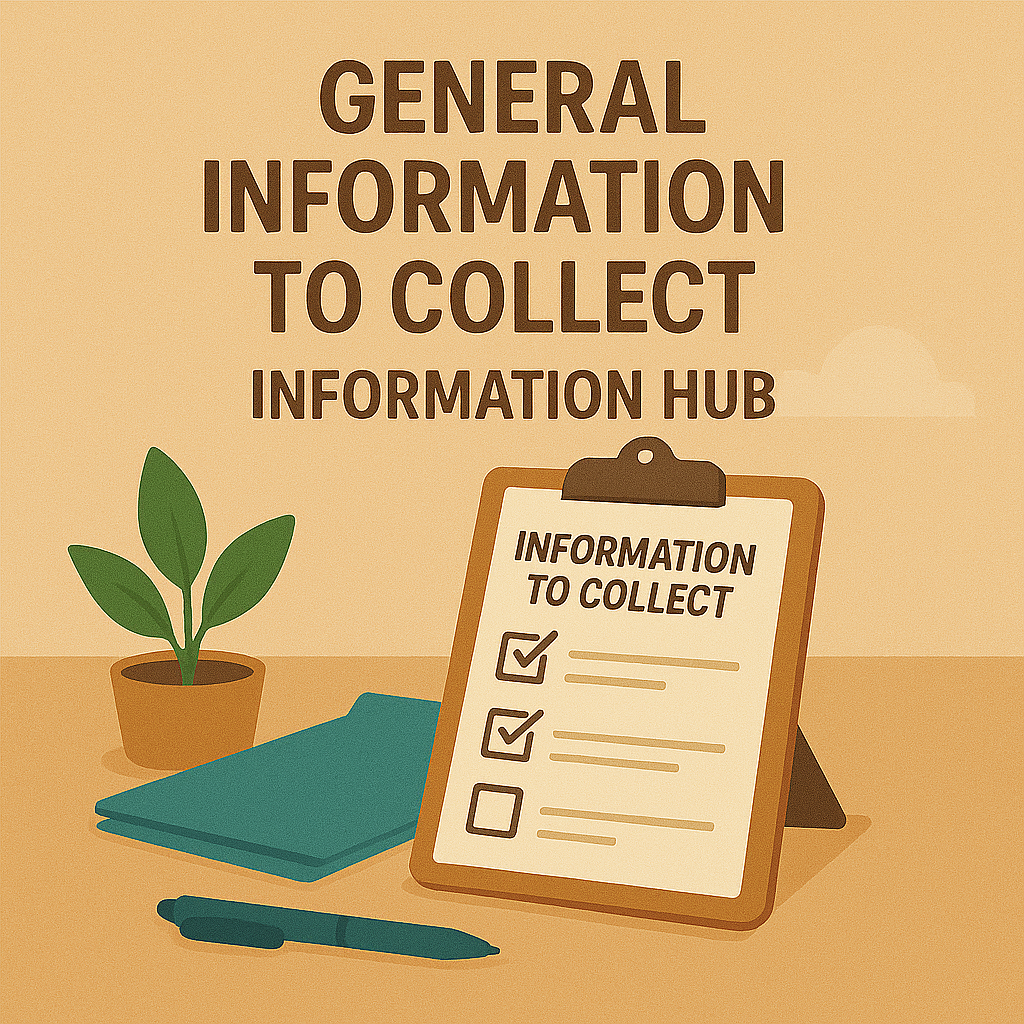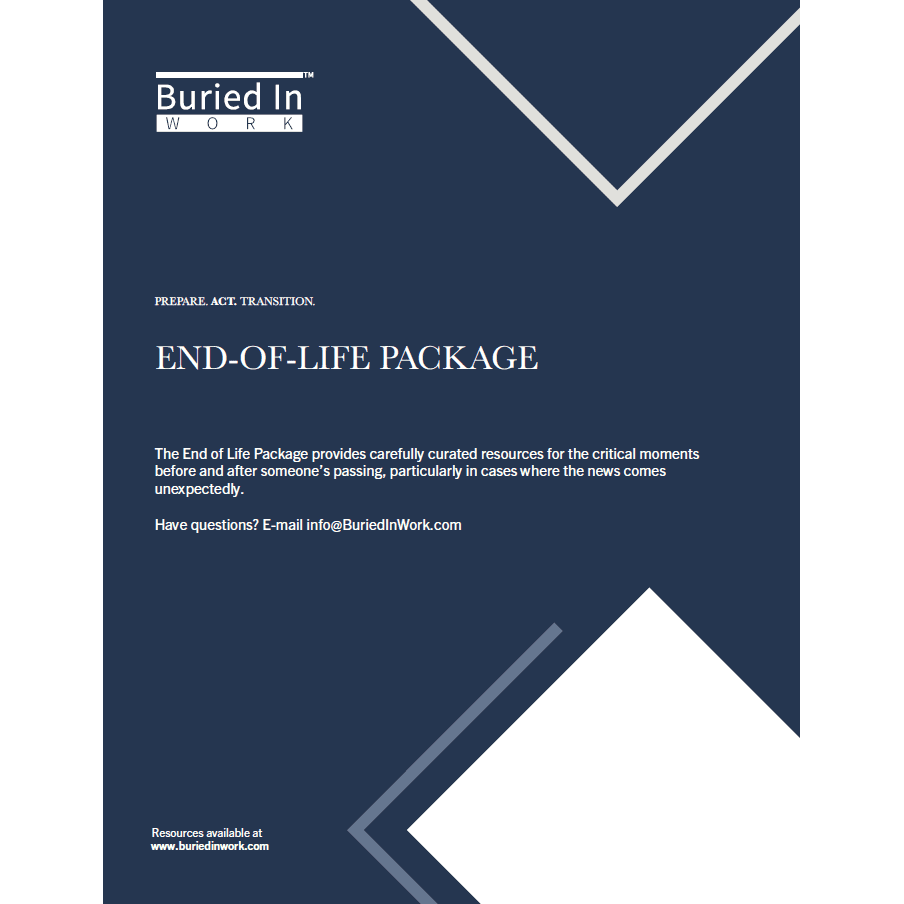Organizing Essential Personal Details
The General Information To Collect Hub
Keeping track of your most essential personal details—like your legal name, contact information, and emergency contacts—may seem simple, but when this information is scattered or out of date, it can create unnecessary stress for you and your loved ones. Whether you’re preparing for the future or just getting more organized, having everything in one place ensures that managing your affairs is straightforward and stress-free.

Key Things To Know
- Your personal information should be easy to find: If your loved ones can’t locate key details quickly, it can create unnecessary stress and delays in emergencies.
- Keep emergency contacts informed: Make sure the people you list as emergency contacts know they’ve been designated and understand how to access important information if needed.
- Update your records regularly: At least once a year, review and update your personal details, especially if you move, change phone numbers, or adjust your emergency contacts.
- Security and accessibility matter: Store your information in a secure location, but ensure that trusted individuals can access it when necessary. A locked file, fireproof safe, or digital vault are good options.
- Having a structured system makes a difference: While you can create your own document, using an organized tool like the CLEAR Kit ensures nothing is overlooked and makes future updates easier.
- Small oversights can create big headaches: Missing or outdated details (like an old address or incorrect contact number) can make it harder for loved ones to handle legal, financial, and medical matters on your behalf.
Checklists, Guides, & Resources
Buried in Work offers a variety of checklists, guides, and other resources. Below are some of the most popular ones related to this information hub.
Find A Service Provider Near You
Need professional assistance? Use our directories to find trusted service providers near you who specialize in estate planning, end-of-life organization, and related services.
Articles
Frequently Asked Questions
Have questions? You're not alone. Below are answers to some of the most common questions about organizing and storing your essential personal information.
Disclaimer: The information provided on this website and by Buried in Work is for general informational purposes only and should not be considered legal advice. Please consult with a qualified attorney or subject matter expert for advice specific to your situation.



